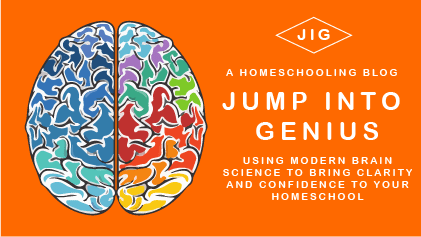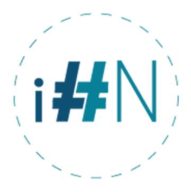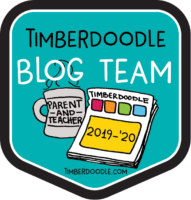Without knowledge of facts, it is hard to think. Thought is not a vacuum and our brains need facts as a framework for thought.
(You are reading the second post in a series about cognitive science in your homeschool, click here for the introductory post and links to the other posts in this series.)
Critical Thinking is Always Tied to Background Knowledge
Many of us think about thought wrong. We think processes such as critical thinking and problem-solving can be taught in isolation. We think our brain is a machine, similar to a calculator, but it is not. Our brain does not learn a certain pattern of thought and then apply that pattern to all input. The way a calculator applies a function, such as a percentage, to any number input. Our mind is much more complicated than a machine and we have the privilege of not only learning many patterns of thought but also of being able to decide when to use each pattern.
In the human mind, critical thinking processes are always tied to background knowledge and we cannot think critically about a topic for which we have no background knowledge.
We Need Facts and Concepts to Form Background Knowledge
Because we are not computers or calculators, but humans, we need to teach critical thinking within the backdrop of plentiful knowledge about the subject.
If we lack background knowledge of a subject we are often missing both vocabulary and concepts needed to understand the problem and will be confused. This is why Scientific Journals are often read only by scientists in the specific field the journal targets. Other smart scientists may be intelligent, but they may not be equipped to understand a subject that requires it’s own set of vocabulary and concepts and then make the needed connections between ideas, otherwise known as thought.
Reading is a Good Example of How We Need Background Knowledge in Order to Think
Reading comprehension is very dependent on the level of background knowledge of a student. This is why, even if a student starts reading late, if they have been exposed to a large vocabulary and a diverse set of concepts when they start reading, they will advance quickly and have a high level of comprehension. If, on the other hand, a student who struggles to read is never read too, or allowed access to audiobooks, or engaged in conversation, they will be stunted in their understanding of what they read, even if they are excellent decoders from a young age.
Understanding text involves thought, we need to be able to make connections between the concepts presented, not just read them in an isolated way. Writers leave out many words. So many words, that without the readers background knowledge to draw on, there may not be a logical flow of ideas. Writers cannot put in every factual detail, vocabulary definition, and concept, or reading would be long and boring. Gaps in writing let the reader fill in the blanks instantly with their long-term memory and the writing is thus more fluid. How much the writer leaves out depends entirely on the audience and the assumed background knowledge of that audience.
Thus, a passage about Thanksgiving would be written quite differently if it was for a 1st grader or a 9th grader.
We do this not only when we write, but when we talk. The simple question “What are you doing?” is quickly customized to whom asked. Our answer to a small child may sound quite different than our answer to an adult. I might say “I am typing.”, “I am writing an article.”, “I am writing about the need for factual information before higher thought processes can take place.”, or “I am summarizing an expert cognitive scientist’s work on how the brains learns and exploring how homeschoolers can apply that knowledge in their homes.”.
Knowing Stuff Makes More Space in Working Memory for Thought
Background knowledge also helps free up more space in your working memory, as you have fewer new facts to hold in working memory, you have more space to devote to thinking about connections.
If we pick an arbitrary number, such as seven, and say we can hold seven things in our working memory, those things can be small or big. We could hold a sequence of 7 letters, or a sequence of 7 words, or 7 concepts, or 7 procedures. If we have all of these things stored in our memory we can quickly retrieve them, use them, put them back, combine them differently, look for patterns. We have the space in our working memory to do this because we already know what all of these things mean.
Chunking Information Together Also Frees Up Space in Working Memory
Combining different pieces of information together is called chunking. When we chunk things together we can get more stuff in our working memory. If information has a previous meaning to us, it is easier to remember. Which of the following is easier to remember? NB, CA, BC, CB, SP, BS or NBC, ABC, CBS, PBS? The same letters, in the same order, but when they are chunked in a way that matches meaningful information in our long-term memory, it is much easier to hold all of the pieces in our working memory.
There have been several studies showing that people understand what they are reading much more if they already have knowledge of the subject they are reading about. In one study good and bad readers (according to standardized tests) were all given the same reading passage about baseball. What they found was that for comprehension of the passage it mattered much more how much the students knew about baseball than it did whether or not they were a good or bad reader.
Our brain interprets new information based on our current knowledge.
Four Ways Background Knowledge Helps Reading Comprehension
1) Provides Vocabulary
2) Bridges Logical Gaps in Writing
3) Allows Chunking, increasing working memory space
4) Guides Interpretation of Ambiguous Sentences
Background Information Helps us Think Clearly
Just as we need background knowledge for clear reading comprehension, we also need it for clear thought. Your brain will default to memory retrieval over logical thinking whenever possible and many times when we think we are witnessing logical thinking we are just seeing memory use. An example is a Chess game, studies have found the best Chess players are actually relying on their memory for game positions. This is why top players are still very good in high-speed tournaments because they are not using the slow process of reasoning, but the fast process of memory retrieval. We think of Chess as a sort of game of reasoning, yet even Chess skill relies heavily on memory.
“When it comes to knowledge, those who have more gain more.” Willingham
This again, like all of Willingham’s concepts is backed by studies and research. When people were given passages on topics they knew a lot about, they were much more likely to remember what they had read the next day. Why is this true? We remember more easily if something has meaning. There is more meaning in topics we already have a good amount of knowledge about. When you have background knowledge your brains connects the new information with the old information that is stored in long-term memory. It knows where to store the information, and you know how to get back to it because it is connected to things you already know. So the more you know, the easier it is to know more.
The More You Know The Faster You Learn More
Learning becomes easier for kids who know more, kids who know less would have to learn new things at a faster pace in order to keep up with kids who know more because they will not retain new information at the same rate.
Willingham argues that knowledge is a prerequisite for imagination, at least if we are describing the kind of imagination that leads to problem-solving, decision making, and creativity.
I agree and can see this even in my own life as a writer. When I knew less, I had much less to say, so I did not create much. I know a lot more now (homeschooling will do that to you) and I have more ideas to create and share than I will ever have the time to get down in writing.
We do want skills to be able to use facts, but we cannot expect to be able to use skills without facts. I could not practice the skill of writing without an extensive vocabulary and a lot of stored examples (gained by reading a ton). Once I had enough knowledge, I could begin to practice the skill, and now the facts and skills can connect with each other and I can learn at a faster rate.
In Your Homeschool
If background knowledge, or facts, makes our brain able to think more easily, then we must help our children gain this knowledge.
First, we must decide which knowledge our students must be taught. I like how Willingham suggests we rephrase this question to depoliticize it, he says for cognitive scientists it is not a question of which knowledge is more important, but of which knowledge will create the greatest cognitive benefit.
The answer will not surprise you.
1) To read, students need the facts necessary to fill in the blanks the reader leaves out. They need to know what is necessary to understand news articles and books on topics such as science and politics written by laymen. Reading requires relatively shallow knowledge compared to some of the other subjects students study.
2) For other subjects, science, history, mathematics, the answer is that students must learn the unifying concepts that come up again and again within those subjects. This affirms the theory that deep learning of a few key concepts in these subjects, concepts that will be built and expanded upon as the child matures, is an effective way to teach. Students cannot learn every fact within these subjects, but they can learn concepts deeply, and basic vocabulary, so that as they encounter the subject again they will pick new information up easily.
Willingham points out that while deep knowledge is desirable and leads to the ability to do things like chunk the information together, shallow knowledge can also be useful and should not be shunned. We cannot attain deep knowledge of everything and shallow knowledge is much better than no knowledge.
Read at all costs. Get your kids to read at all costs. Reading a lot increases your child’s background knowledge. Try to find books which will introduce your child to new facts and information, but are not so difficult they will not be able to remember anything they read the next day. Fiction also is full of rich knowledge.
Learning can happen without concentrated study and memorization, but simply through exposure. I am sure you are sometimes surprised by your child’s knowledge of something you did not teach them, they picked it up incidentally, through books, or peers, or a conversation with grandparents.
Naturally you want to expose your child to new concepts throughout the day, and not just when you are “doing school”. Use your vocabulary when talking to your kids. Ask your kids questions and listen to their answers. Go on trips to see new things together zoo’s, museums, etc. Make books available. Make sure your kids see you reading. I know, it always comes back to the basics, doesn’t it? All of the things we are probably already doing. But it is good to sit in the knowledge that what you are doing is just what your kids need, and it is enough!
Last but not least, don’t take the idea that kids need a rich store of knowledge and turn it into a long list of unconnected facts to memorize. List learning does not connect facts or include the concepts your child needs in order to understand the connections between facts. The topic of the next post will go into why some knowledge seems to move into our long-term memory while other knowledge goes straight from our working memory back into the abyss. With tips on how to make sure the knowledge we are trying to give our students gets into their long-term memory.
This is just a short explanation of the concept covered by Willingham in his book, Why Don’t Students Like School. There is so much more in his book, and I strongly recommend reading it. One thing Willingham does in his book is take you through many more examples, persuading you as he introduces each idea. If I had a top ten books home educators should read, this would be on it.



2 Responses
[…] Facts Are The Path To Thinking […]
[…] potential pitfalls. You don’t have to give up the idea completely to embrace the need for facts as a foundation of […]